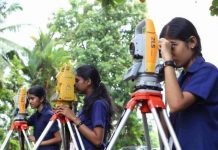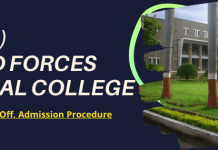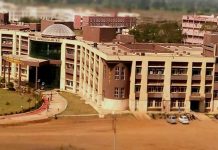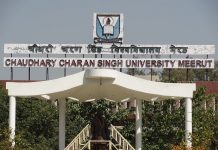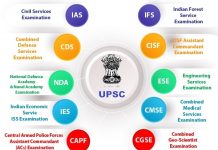About Bachelor of Veterinary Science (BVSc)
For medical candidates who love faunas and want to follow medicinal science for curative animal disease, Bachelor of Veterinary Science is the finest degree course. The course is also recognized as BVSc and communicates teaching that allows alumnae to diagnose diseases in faunae and recommend medicines. The course prospectus encompasses a thorough study of animal structure, nutrition, diseases and physiology. The five-year progression will encompass both theoretical subjects as well as practical examinations. Candidates also have to revenue up a medical residency of six calendar month to one year in the final year of the programme in order to attain the BVSc degree.
Bachelor of Veterinary Science (BVSc) – Course Highlights
| Course Name | Bachelor of Veterinary Science |
| Short Name | BVSc |
| Course Type | Gradation Course |
| Level | Undergraduate |
| Grade | Bachelor |
| Specialisation | Veterinary Science |
| Relevant Field | Medicine/ Medical Science |
| Course Duration | 5.4 Years |
| Internship | Obligatory |
| Minimum Requirement | 10+2 |
| Age Requirements | 17 Years |
| Admission | Arrival Examinations |
| Course Fee | INR 10,100 Per Annum – INR 2 LPA |
| Average Initial Salary | INR 5.1 LPA – INR 8 LPA |
| Employment Opportunities | Veterinary, Veterinarian Advisor, Veterinary Surgeon, Professor, Researcher, etc. |
Bachelor of Veterinary Science (BVSc) Specialisations
- BVSc Animal Heredities and Breeding
- BVSc Veterinarian Microbiology
- BVSc Veterinarian Surgery & Radiology
- BVSc Veterinary Surgery and Radiology
- BVSc Animal Manufacture & Management
- BVSc Animal Nourishment
- BVSc Livestock Production and Organization
- BVSc Veterinarian Medicine, Public Health & Hygiene
- BVSc Veterinarian Pathology

Bachelor of Veterinary Science (BVSc) Eligibility Criteria
The suitability criteria for the Bachelor of Veterinary Science (BVSc) have been stated below.
- Minimum Qualification Required: 10+2 (Physics, Chemistry and Biology)
- Minimum Marks Required (Aggregate): 50%
- Minimum Age Required: 19 Years
B.V.Sc Admission Process
- In instruction to take entrance fee in B.V.SC courses, applicants have to study Science up to class 12 with Biology, Interaction and Physics as required subjects.
- Minimum passing marks may differ from college to college.
- Assortment for this progression is done on the basis of appearance exams.
- All wishful applicants have to seem for B.V.SC arrival exams for the colleges that they are targeting.
BVSc Entrance Exams
Following are some popular B.V.SC entrance exams:
- All India Common Entrance Examination
- College Of Veterinary Science and Animal Husbandry Entrance Exam
- All India Pre Veterinary Test
- Engineering, Agriculture & Medical Common Entrance Test
- Indian Veterinary Research Institute Entrance Exam
- Kerala Agricultural University Entrance Exam
- Indian Council of Agricultural Research Entrance Examination
- JNU Combined Biotechnology Entrance Exam
- Tamil Nadu Veterinary and Animal Science
- Kerala Engineering Agricultural and Medical Entrance Test
- Also read: HOW TO BECOME AN ARCHAEOLOGIST IN INDIA AFTER 12TH
Bachelor of Veterinary Science (BVSc) Syllabus
Stated below is the semester-wise curriculum of the Bachelor of Veterinary Science course.
Year I
| Semester I | |
| Preliminary Animal Husbandry | Veterinary Anatomy in General and Osteology |
| Opportunity and Importance of Biochemistry | Osteology |
| Outline and Importance of Statistics | Livestock in India |
| Semester II | |
| Position of Grasslands and Fodders In-Livestock Production | Sense Organs and Receptors Physiology of Special Senses |
| Protest of Embalming of the Carcass and Preservation | Myology |
| Power Physiology | Enzymes: Definition and Classification |
Year II
| Semester III | |
| Factors Affecting the Digestibility of a Feed | Introduction and History of Microbiology |
| Introduction and Scope of Veterinary Pathology | Parasites and Parasitism |
| General Histology | Indian Poultry Industry |
| Semester IV | |
| Spermatogenic Cycle and Wave | The Biting Midges |
| Concepts in Veterinary and Medical Immunology | Biochemical and Genetic Determinants of Growth |
| Introduction and General Description to Protozoa and their Development | Gross Morphological and Topographical Study of Various Organs of the Digestive System |
Year III
| Semester V | |
| Concept of Sociology | General Pathology of Viral Infections |
| Layout and Management of Rural, Urban and Modem Abattoirs | Milk Industry in India |
| Milk Hygiene in Relation to Public Health | Historical Development Branches and Scope of Pharmacology |
| Semester VI | |
| Drugs acting on the Autonomic Nervous System | Parasitic Diseases |
| Introduction to Aquatic Animals | Viral Diseases |
| Retrospect and Prospect of Meat Industry in India | Definitions and Aims of Epidemiology |
Year IV
| Semester VII | |
| Antibacterial Agents | History and Scope of Veterinary Medicine |
| Clinical Evaluation and Abnormalities of Reproductive Tracts in Domestic Animals | Clinical Manifestation |
| Principles of Viewing and Interpreting X-ray Films | Pre-anaesthetic Considerations and Pre anaesthetics |
| Semester VIII | |
| General Toxicology | Man-Animal and Society |
| Dystocia – Types of Dystocia | Valuation of Acid-Base Balance and Interpretation |
| Types and Functions of Placenta in Different Species | Aetiology, Clinical Manifestations |
Year V
| Semester IX | |
| Definition of Animal Welfare and Ethics | Breeds of Dogs- International Pedigree Breeds and those Commonly seen in India |
| Introduction to Andrology | Livestock Entrepreneurship |
| Taxonomy of Various Genera of Wild/Zoo Animals of India along with their Descriptions | Definition, Scope and Importance |
| Semester X – Internship |
For further information: Education in India








